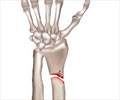Regular physical activity and weight loss induce a slower degeneration in the tissue that covers the knee joint.
Highlights
- Being overweight or obese can place extra pressure on joints and cartilage, causing them to wear away.
- Weight loss slowed articular cartilage degeneration, and changes in the menisci.
- Light to moderate exercise is also recommended to protect against cartilage degeneration in the knee.
"We looked at the degeneration of all knee joint structures, such as menisci, articular cartilage and bone marrow."
The research team investigated the association between weight loss and the progression of cartilage changes on MRI over a 48-month period in 640 overweight and obese patients (minimum body mass index [BMI] 25 kg/m2) who had risk factors for osteoarthritis or MRI evidence of mild to moderate osteoarthritis.
Data was collected from the Osteoarthritis Initiative, a nationwide research study focused on the prevention and treatment of knee osteoarthritis. Patients were categorized into three groups: those who lost more than 10 percent of their body weight, those who lost five to 10 percent of their body weight, and a control group whose weight remained stable.
- Patients with 5 percent weight loss had lower rates of cartilage degeneration when compared with stable weight participants.
- In those with 10 percent weight loss, cartilage degeneration slowed even more.
- Weight loss slowed articular cartilage degeneration, they also saw changes in the menisci. Menisci are crescent-shaped fibrocartilage pads that protect and cushion the joint.
"Our study emphasizes the importance of individualized therapy strategies and lifestyle interventions in order to prevent structural knee joint degeneration as early as possible in obese and overweight patients at risk for osteoarthritis or with symptomatic osteoarthritis," Dr. Gersing said.
- Alexandra Gersing et al., Weight loss can slow down knee joint degeneration, Radiology (2017).
Source-Medindia
















